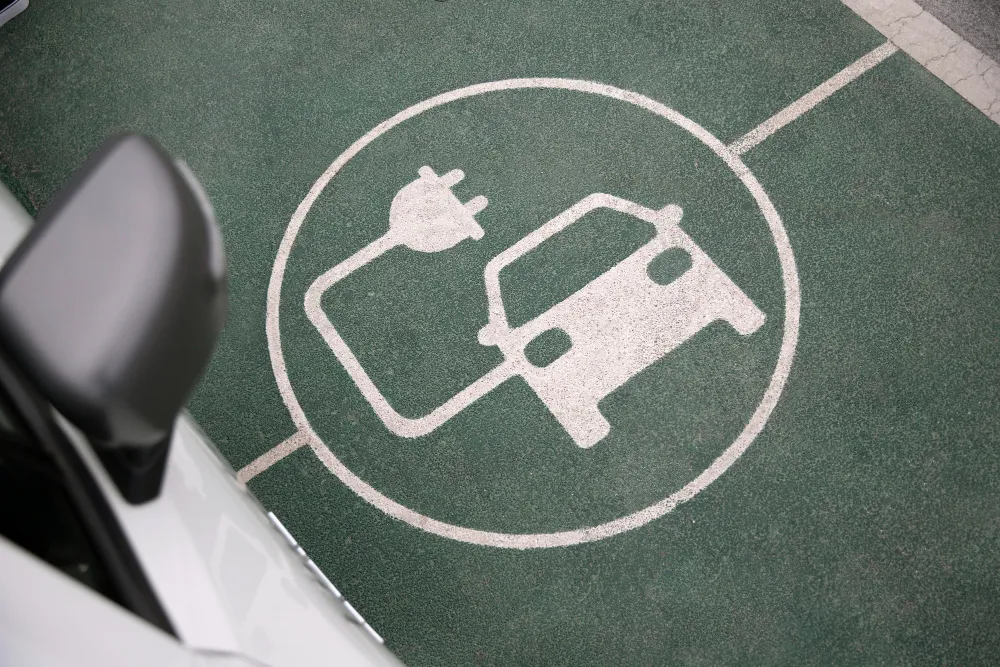Eco-Friendly Driving: Intelligent Auto Financing for Your Upcoming EV
Explore how to acquire your new electric vehicle with a secure and affordable loan—review all the requirements today. Learn more.
Securing a Great Loan for Your New EV
Purchasing an electric vehicle (EV) in the U.S. in 2025 is not only a green choice but also a savvy financial decision.
The upfront expense of an EV can be daunting, which is why grasping how auto loans for EVs function is vital.

With the right financing options, you can leave the dealership with a new electric vehicle without jeopardizing your finances.
What’s Fueling the EV Surge?
The rising interest in electric vehicles across the U.S. is driven by several significant factors:
• Volatile fuel prices
• Government incentives
• Increased focus on sustainability
Manufacturers like Tesla, Ford, Chevrolet, Hyundai, and new players such as Rivian and Lucid are pouring resources into this sector.
EVs have transitioned from being niche offerings to must-have items in American homes. Yet, despite their gradually decreasing prices, EVs typically remain pricier than gasoline vehicles.
Getting Started with EV Financing
As with any auto loan, the journey begins with evaluating your credit.
Financial institutions, credit unions, and automakers will review your credit score, income, existing debts, and past financial behavior.
If your score exceeds 700, you’re likely to secure the best interest rates.
However, even with scores between 640 and 699, you may still find favorable terms—especially if you can provide a down payment and demonstrate stable income.
Unlike conventional car loans, many EV financing options come with special incentives.
Some lenders provide reduced interest rates, cashback offers, or enticing bonuses to motivate buyers to choose electric vehicles.
Special Rate EV Loans
Institutions like Bank of America, Wells Fargo, and Chase provide loan options specifically designed for electric vehicles. Yet, credit unions truly excel in this area.
Credit unions such as Navy Federal Credit Union, PenFed, and Alliant Credit Union offer highly competitive rates, starting as low as 4% annually in some instances.
Some manufacturers provide in-house financing options to enhance EV sales. For instance, Tesla Financing presents attractive rates for the Model 3 and Model Y, available for up to 72 months.
Ford Credit and GM Financial also feature dedicated EV financing options, often linked to seasonal deals.
Financing Assistance from the Government
The federal government provides a tax credit of up to $7,500 for eligible electric vehicles as part of the Inflation Reduction Act.
Even if you don’t receive this money right away, it can reduce your tax burden in the next year, making taxes lighter.
Many states have their own programs, offering direct rebates, tax breaks, access to HOV lanes, and complimentary parking in certain cities.
These incentives can be integrated with your auto loan, potentially decreasing the overall amount you need to borrow or even covering your down payment.
Should You Lease or Buy?
Many consider leasing as an alternative to purchasing. Since EVs feature advancing technology and expensive batteries, they depreciate differently than traditional gas vehicles.
Leasing could be a smart choice if you plan to change models every 2–3 years and want to avoid concerns about resale or upkeep.
Conversely, purchasing with a loan remains the best route if your goal is to accumulate equity over time.
Key Considerations When Finalizing Your Loan
Prior to signing any documents, make sure to pay attention to these important aspects:
- APR (Annual Percentage Rate): This reflects the interest rate plus any fees. Lower is better.
- Loan Duration: Longer terms lower monthly payments but increase total costs. Find a good middle ground.
- Initial Payment: A larger down payment means you borrow less. Aim for at least 10% of the vehicle’s price.
- Early Payment Fees: Some loans impose fees for paying off early. It’s best to steer clear of these.
Digital Resources and Loan Calculators
If you’re uncertain about your budget, numerous banks and fintech companies provide EV loan calculators.
Websites like NerdWallet, Bankrate, and Credit Karma let you compare various options tailored to your credit situation.
Applications such as Autopay, TrueCar, and even car manufacturer sites provide quick online pre-approval—helping you negotiate better at dealerships with a financing offer ready to go.





